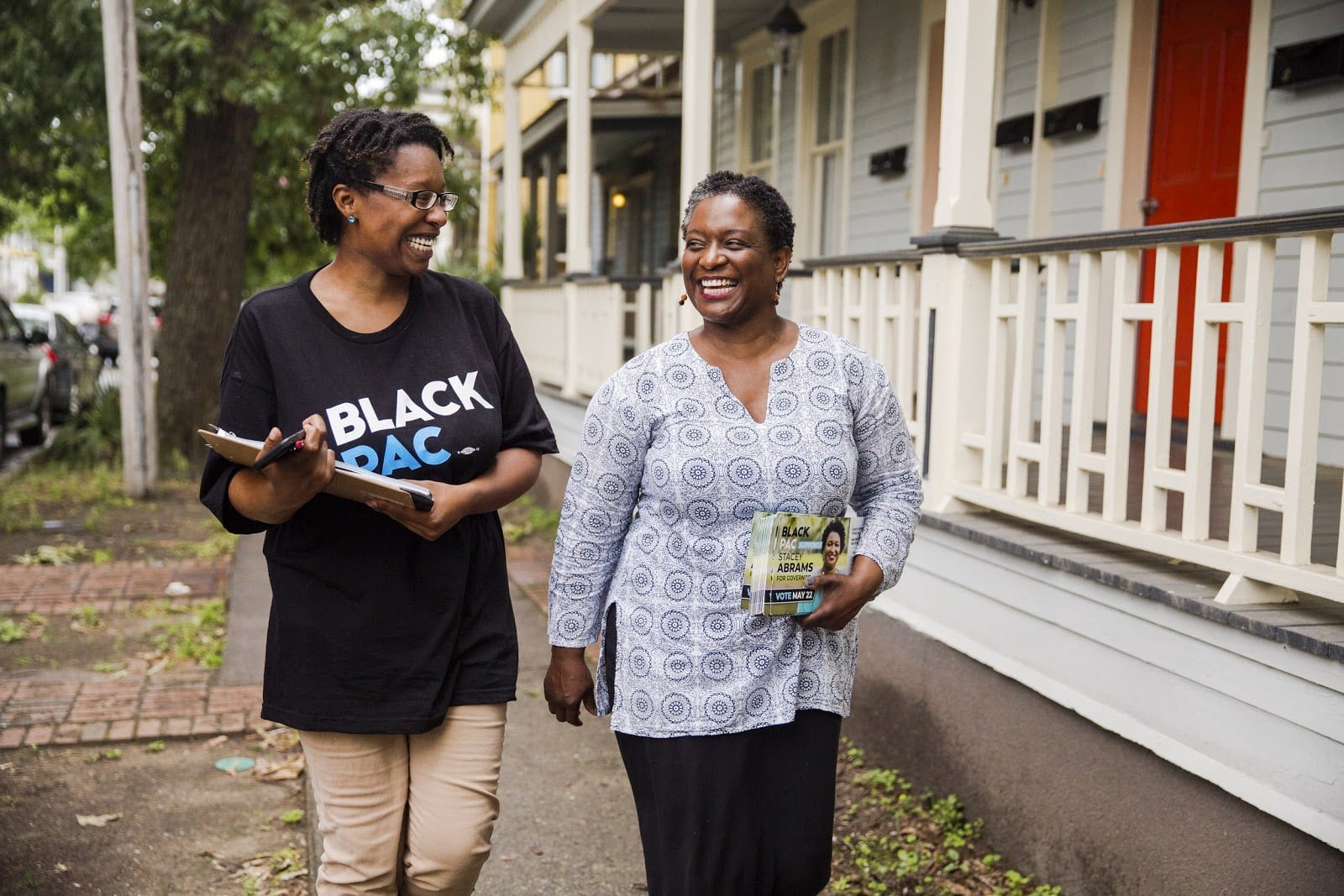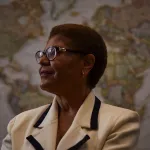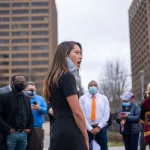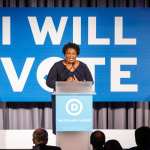The morning after Black voters propelled Democrats to two Senate runoff victories in Georgia, BlackPAC Executive Director Adrianne Shropshire was signing off on an invoice for polling on Black voters in the 2021 Virginia governor’s race — the organization’s next target.
After mobilizing Black voters in the 2020 cycle, particularly in rural areas, Black women organizers are on offense. They’re eyeing potential opportunities for more wins in upcoming local, state and federal campaigns where they can replicate their playbook: continuing to expand the party’s base and elect more Black women.
“Instead of saving democracy, we’re able to focus on activating democracy on behalf of Black women,” said Shropshire, who added that BlackPAC will be working in states including Georgia, North Carolina, Pennsylvania and Wisconsin, all of which have Senate races in 2022 that could determine the chamber’s balance of power.
“Democrats have the opportunity to expand on the Senate majority in 2022,” she said. “The only way that happens is to start building the infrastructure and re-engaging voters from this cycle. We cannot let another two years go by before we start talking to those folks again. … It is as important to course correcting this nation as 2020 was.”
Black women organizers were instrumental in registering and turning out Black voters, the backbone of the Democratic Party in 2020, helping to make Joe Biden the party’s nominee last spring and propelling him to victory in November amid a deadly pandemic and voter suppression efforts. In the final weeks of 2020, they focused their efforts again on Georgia, registering and turning out even more Black voters in the state than during the general election.
Their strategy was a combination of galvanizing support in urban areas and expanding the electorate in rural areas with significant Black populations. It’s an approach Black Voters Matter co-founder LaTosha Brown said she plans to take into states including Louisiana and North Carolina this year.
“Louisiana has very similar elements to Georgia: It’s a Deep South state that isn’t red; it’s just been underinvested in,” said Brown, whose efforts during the runoff were focused on Georgia’s Black Belt and areas with a Black population of at least 30 percent.
“Outside of New Orleans, a lot of the Black population is in rural areas throughout the parishes,” Brown pointed out. “And North Carolina’s right on the edge. It’s absolutely a purple state, and we’ve got strong partners and a strong, educated base of progressive Whites.”
Investing early, being consistent and focusing on the long game is also key, said Glynda Carr of Higher Heights, a group that backs Black women as candidates and engages them as voters and donors.
“Stacey Abrams’ blueprint included her having an election stolen for us to get to a point where everybody was talking about voter suppression,” said Carr, referring to the Georgia Democrat’s 2018 defeat in her bid to become governor before she launched a juggernaut group, Fair Fight Action, to recruit voters and battle voter suppression.
“There’s Black women running for mayor in some of the largest cities in this country in 2021,” said Carr, citing Keisha Lance Bottoms’ reelection bid in Atlanta and candidates like political newcomer Maya Wiley in New York’s mayoral contest. “You have multiple Black women running for governor in Virginia. This is absolutely about building the bench, and we have now created the blueprint and the environment. We should never be in a space where the ascension of one Black woman leaves a vacant hole.”
Hillary Holley, the organizing director for Fair Fight, said continuing to fight voter suppression in Georgia’s current legislative session is an immediate priority for the group. The group wants to ensure that the use of mail ballots, a voting mechanism Republicans are looking to suppress through proposed legislation this year, “is a method that will remain lasting in Georgia.”
Looking ahead to 2021, Holley said municipal races across the state will be a priority, including the Atlanta mayoral contest, where Keisha Lance Bottoms — the city’s sixth consecutive Black mayor — is expected to run for reelection. In 2022, Fair Fight will have to double back to help reelect freshman Democratic senator Raphael Warnock, who will be back on the ballot in Georgia and is expected to face strong Republican opposition.
Shropshire said Black organizers and voters have proved they are ready for the political fights ahead on multiple fronts across the country.
“Black people are just so done and are at a place where we will put it all on the line. … The entirety of the community has essentially said, ‘No further,’” she said. “It’s going to take work at every level.”






